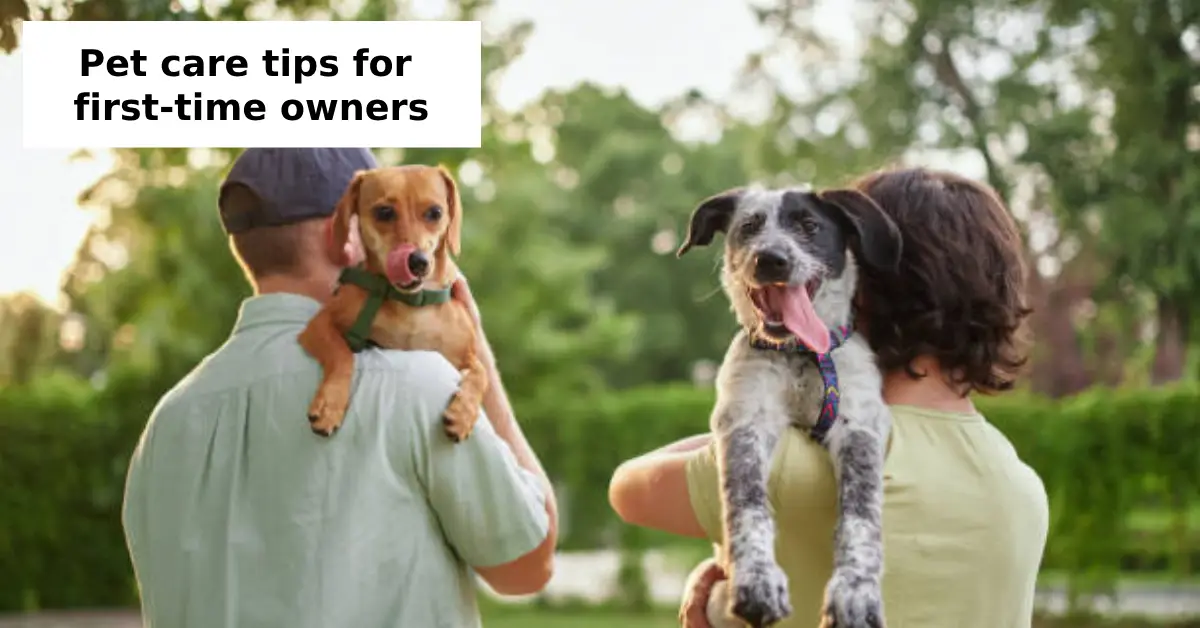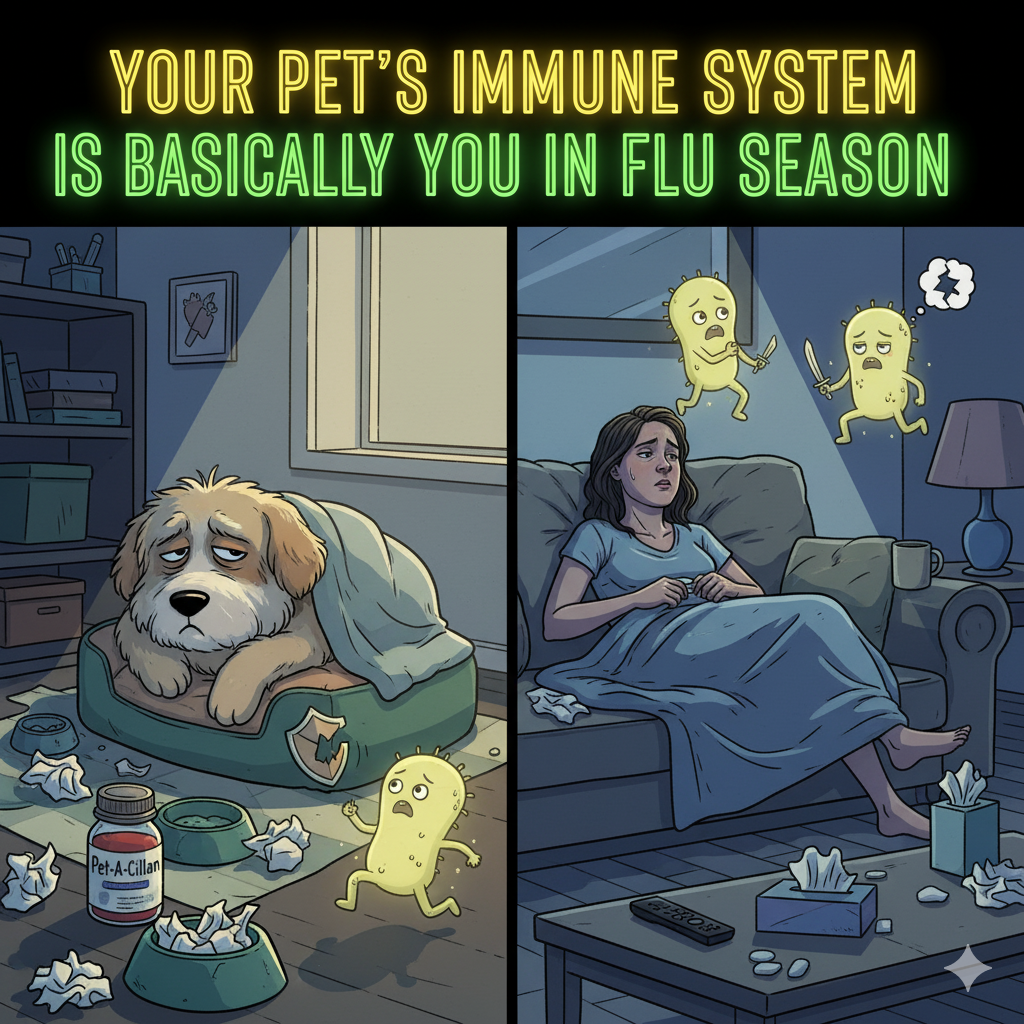Bringing home a pet for the first time is both exciting and overwhelming. Whether you’re a first-time dog or cat owner, a family preparing to adopt a pet for the kids, or a young professional working remotely and looking for companionship—understanding the basics of pet care is crucial.
This beginner pet care guide will walk you through all the essential pet care tips for first-time owners so you can confidently raise a happy, healthy pet in your home.
Understand Your Pet’s Needs
One of the most essential pet care tips for first-time owners is to recognize that every pet has unique physical and emotional needs. Dogs, for instance, require daily walks, social interaction, and obedience training. Cats might need more independence but still benefit from daily play and affection.
For new pet parents adopting from shelters, take time to learn about your pet’s background, behavior traits, and any potential anxieties they may have.
Create a Safe Home Environment for Pets
A safe home environment for pets ensures their physical safety and emotional well-being. Secure electrical cords, remove poisonous plants, and ensure that any small items that can be swallowed are out of reach.
If you’re living in a city apartment or suburban home, create a specific space—like a cozy pet bed or corner crate—where your pet feels secure.
Follow a Pet Care Checklist for First-Time Owners
Having a pet care checklist for first-time owners helps keep you organized. Here’s a simplified version:
- Food and water bowls
- Comfortable bed/crate
- Toys for mental stimulation
- Grooming tools (brush, nail clippers)
- Collar with ID tag
- Leash and harness (for dogs)
- Litter box (for cats)
- First aid supplies
This checklist is especially helpful for millennials adopting pets for companionship or individuals who want a structured approach to pet care.
How Often to Feed Pets?
Knowing how often to feed pets depends on the type, size, and age of the pet. Generally:
- Puppies: 3–4 small meals a day
- Adult dogs: 1–2 meals a day
- Kittens: 3–4 times daily
- Adult cats: 2 meals a day
Always choose high-quality food and consult your vet for breed-specific advice. Following a consistent feeding schedule helps prevent digestive issues and obesity—one of the most common pet health issues and solutions vets advise on.
Basic Pet Grooming Tips
Basic pet grooming tips not only improve your pet’s appearance but also keep them healthy. For dogs, brush their coat regularly, bathe once a month (or as needed), and keep nails trimmed. Cats usually groom themselves but still benefit from brushing to reduce shedding.
Don’t forget ear cleaning and dental hygiene—key components of grooming that many pet adopters seeking beginner-level care tips tend to overlook.
Pet Vaccination Schedule USA
Following the recommended pet vaccination schedule in the USA is crucial. For dogs, common vaccines include:
- Rabies
- Distemper
- Parvovirus
- Bordetella
For cats:
- Rabies
- Feline Distemper
- Feline Herpesvirus
Visit your vet soon after adoption to begin vaccinations and discuss long-term health plans, especially if you’re among young professionals working remotely and adopting pets who might not be aware of these schedules.
Mental Stimulation and Exercise
Just like humans, pets need mental and physical stimulation to avoid boredom and behavior issues. Daily play, training sessions, and interactive toys are highly recommended—especially for families planning to bring home a pet for kids.
Dogs benefit from puzzle feeders and long walks, while cats enjoy climbing trees, feather wands, and laser toys.
First Time Dog Owner Advice
If you’re a first-time dog owner, patience is key. Establish routines for feeding, potty training, and walks. Use positive reinforcement, avoid harsh punishment, and give them time to adjust.
Early socialization is essential for well-rounded dogs. Don’t hesitate to seek training help or read up on the best pet care tips for dogs to ease the journey.
Know Common Pet Health Issues and Solutions
Being proactive about common pet health issues and solutions can save your pet’s life. Here are a few to watch out for:
- Diarrhea or vomiting: Can indicate digestive problems or infections.
- Lethargy: Might point to internal illness or emotional distress.
- Scratching or licking excessively: Could be due to allergies, fleas, or anxiety.
Always consult your vet if you notice any sudden behavioral or physical changes.
How to Take Care of a Pet at Home
Learning how to take care of a pet at home means combining all of the above with love, patience, and attention. Build trust through consistent care, avoid harsh discipline, and make time for bonding every day.
For elderly individuals adopting pets for companionship and routine, having a pet at home can improve mental health, reduce loneliness, and create a structured day.
Travel and Emergency Prep
New pet owners often forget to plan for travel or emergencies. Keep an emergency kit with food, water, medicine, and a carrier ready. If you travel frequently, get your pet used to short car rides and invest in travel-friendly gear.
Regular Vet Visits and Insurance
Schedule regular checkups—ideally every 6–12 months. Consider pet insurance to help cover unexpected health issues. Many suburban or city-based pet owners in the US now include pet insurance as part of their long-term care plans.
Emotional Bonding and Social Needs
Pets are social animals that crave companionship. Spend quality time cuddling, training, or just being nearby. This is particularly comforting for individuals living alone looking for emotional support animals or those going through life changes.
Adopt, Don’t Shop
If you haven’t adopted yet, consider visiting a shelter. New pet parents adopting from shelters not only give an animal a second chance but also help reduce overpopulation. Shelter pets can be just as loving and trainable as those from breeders.
Conclusion:
Becoming a pet parent is one of the most rewarding decisions you can make. By following these essential pet care tips for first-time owners, you’ll be prepared to provide a safe, loving, and structured home. Whether you’re a student, family, retiree, or single adult—every pet deserves care, and every owner deserves a happy journey.
Want to dive deeper into care for specific animals? Check out our detailed guide on the best pet care tips for dogs to start building your perfect pet-friendly life.






1 thought on “Essential Pet Care Tips for First-Time Owners”